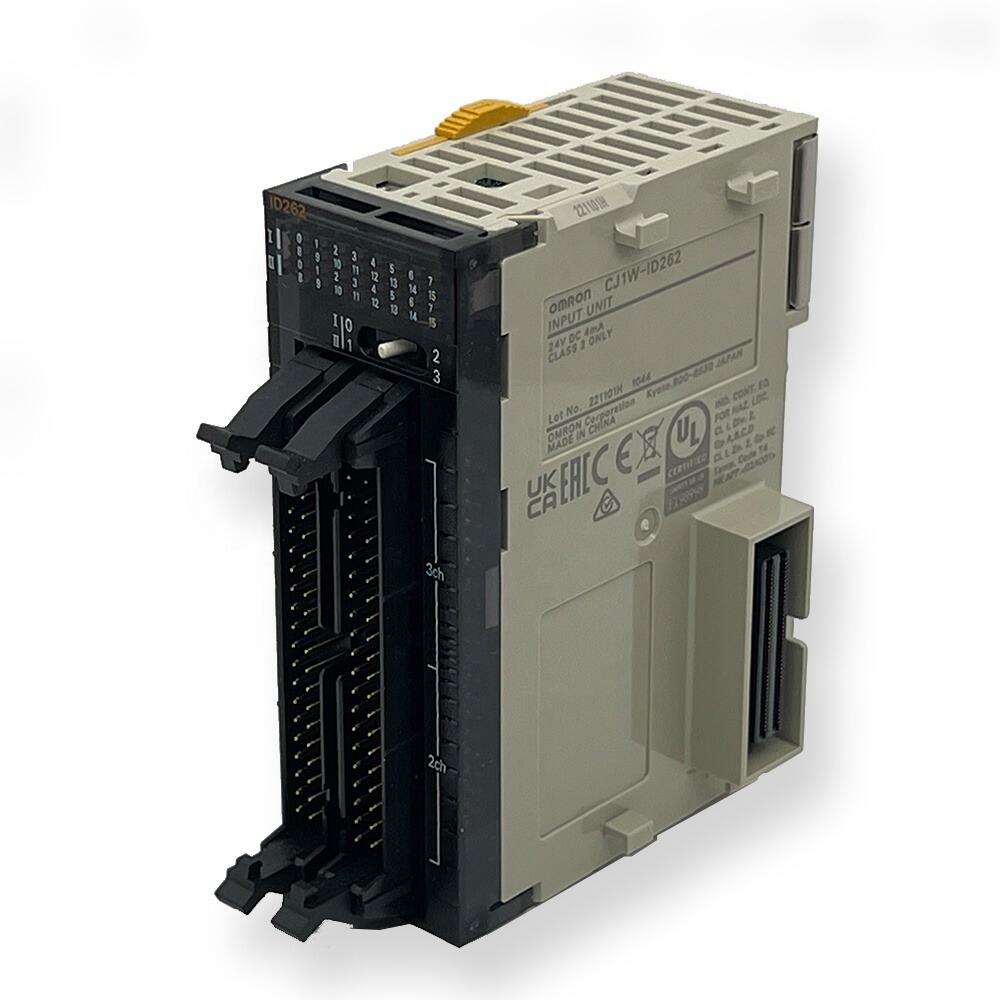
Flexibility and Scalability
The flexibility and scalability of Omron PLC controllers and systems is one of the most appealing features to businesses. After all, industrial needs types are seldom stagnant. In this regard, Omron PLC controllers are well suited for the task owing to the modular system architectures they provide. Be it a basic control system or a complicated control of manufacturing processes, these controllers permit straightforward expansion by the inclusion of additional modules when needed. This flexibility ensures that replacement controllers are not introduced too frequently as the controller would expand with the growth of the business.
High Speed Processing
For the industries where the control of processes and cyclical timing is of utmost importance, the speed of processing of a PLC controller becomes a very important factor. It is largely recognized that Omron PLC controllers have high speed processing that enables complex processing in real time. This is important in the automotive sector, Food and beverage, packaging production where errors and delays can cause extensive downtime. The quick processing of the controller ensures that when inputs are provided, the outputs and some of the inputs are altered almost instantaneously.
Dependable Performance in Great Offender Environments.
Industrial environments are quite tough and usually subject to dust, heat, moisture, and vibrations. In such situations, dependability is of primary importance in order to avoid costly breakdowns. Omron PLC controllers are built for such adverse conditions and provide strong design together with high level of troubleshooting. They are designed in such a way that even the most strenuous operational requirements would not affect their appliance efficiency, which is a big relief for businesses operating in challenging environments.
Easy Integration and Compatibility
Time and again, both system integrators and clients complain of the intricacies involved in bringing disparate systems into a single efficient whole with the Omron PLC controllers being an exception. They are compatible with all industrial networks as they support several communication protocols such as Ethernet/IP, Modbus and DeviceNet. This makes it possible for businesses to easily integrate Omron PLC controllers in their existing automation systems without incurring expensive upgrades and complex programming. As a result, the communication ability with other devices in the system allows for efficient performance and data sharing in real-time basis.
Easy-to-Use Programming Software
For the less acquainted with automation systems, programming of the PLC controllers tends to be a meditative task. However, Omron PLC controllers are provided with plug and play programming software which is straightforward in nature. The software employs a 3D interface that allows users to design and modify control logic at the fastest and least trouble possible. This is particularly important for companies without competent internal technical talent, as it minimizes learning process and ensures that even laymen can easily operate the system.
Energy Efficiency and Cost Savings
Increasing its prominence for industries across the world, energy efficiency is beginning to underpins deeper integration of automated systems within the operations and processes of organizations. Omron PLC controllers help to save energy through improved operational efficiency of machines and systems. They provide control on the equipment to the extent that unnecessary idling and running will be things of the past. This leads to a reduction in the energy needed which is not only advantageous to the surroundings but also offers considerable savings to the organization.
Technological Management for the Future
Once invested in automation technology, businesses have to be sure of its longevity while staying fit for future technology integration. Omron has taken a revolutionary step in technology integration for their PLC controllers – the incorporation of advanced data analytics and IoT features. These controllers provide insight into operations by collecting and analyzing data from a wide array of available sensors and devices. With the rise of the Industrial Internet of Things (IIoT), Omron is helping to shape the future relevance of its PLC controllers.
Use Cases for Omron PLC Controllers
Omron PLC controllers get applied in diverse industries including, but not limited to, manufacturing, automotive, pharmaceuticals, and packaging. In manufacturing plants, such controllers are worked in automation of assembly lines and production process monitoring and even controlling of machines. In the automotive industry, such controllers help in welding, painting, assembly, etc. Such encoders also come in handy in the pharmaceutical industry with several processes such as Mixing, filling, and packaging, all of which are subject to demanding industry requirements. Given the range of processes and functions, these kinds of controllers are prudent for application in a myriad of industrial processes.
The Omron PLC controllers have their advantages putting them in the best position for companies looking to improve their automation system and for sure they won’t disappoint. They are flexible, can process information quickly, and are reliable even in harsh working conditions hence can support industrial processes in this modern day. Their programming software is easy to use and with plans on technology that will stand the test of time, these are machines that are built for the future.

Copyright © TECKON ELECTRIC (SHANGHAI) CO., LTD Privacy policy